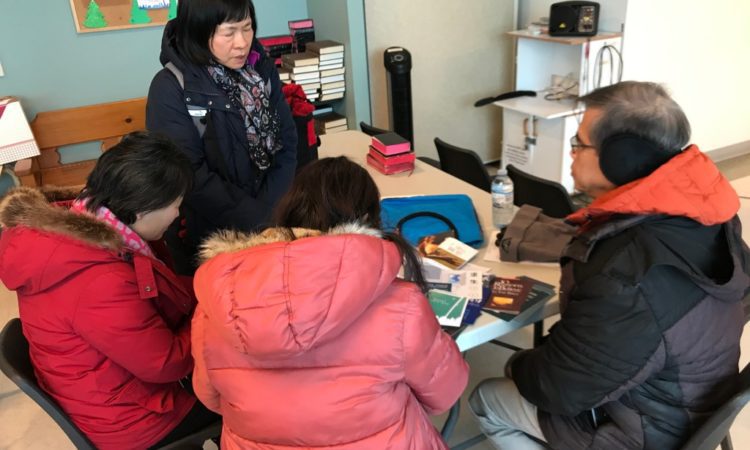Perspective of Living and Working – by Xiao Bing 2022-03, 228
Dear readers, we are glad to start introducing a more systematic aspect of the mainland Chinese immigrants of Canada, this is a relatively broad approach due to limitation of coverage. Our main focus will be on the practical interactions with them in the prospect of building better connection and caring. Paul said, “… I have become all things to all people, that by all means I might save some.” (I Corinthian 9:22) It has not been easy for brothers and sisters with background of Hong Kong, Taiwan, Southeast Asia to become mainland Chinese, and even though some may have background from China, they can be very different due to the diverse geographical distribution of China herself. It is therefore critical to understand more of the gospel framework of thinking and methodology in order to develop ways to establish communication and trust. In the end, worry what they worry, share the joy of theirs, and to become part of them.
There is no official statistics of Chinese immigrants from mainland China in Canada, it is speculated to be 500,000, and probably less than 3% are Christians. In regard, what exactly is their perspective of living and working in general? Living encompasses food, clothing, housing, and finance, while working represents source of income to ensure security and quality of life. In comparison to Chinese of other part of the world, people of mainland China have gradually obtained wealth and live without hunger 10 years after cultural revolution. In 1980’s, 1990’s, Deng Xiaoping proposed targets are “spiritual civilization”, and “material civilization”. And 20 to 30 years have lapsed since then, the general population has been chasing wealth and material, not quite in the spiritual aspect. In everything just fixate on the money aspect has become a principle people keep by heart but not on lips. People used to live in meager pay, in low standard of living, looked down by other, now shy away from poverty. Being able to have stable income through steady jobs means elevated standard of living, and no longer looked down by others, is something of their pride. This is the exact kind of mindset of people who immigrate from mainland China to Canada. Yet there are people who are unable to find good pay job due to limitation of education, social status or work experience. Many therefore choose education again to attain professionals, other professionals seek better pay and job within their profession to attain better living. In terms of nice clothing and good food, many older immigrants (more than 15 years) who have improved in living, or other new immigrants from China with better economic status, they all tend to seek daintiness – name brand in cosmetic, clothing, food, etc. Other immigrants who are not demanding in cosmetic, clothing, or food, tend to look for relaxing and leisurely living. The standard of demand for houses and cars are very much similar in both groups – immigrants from mainland China and other Chinese immigrants. In other word, if finances permit both groups want large houses, good houses, good school districts, good cars, name brand cars. To some mainland Chinese immigrants, house mortgage and car payment become excessively burdensome, leading to less time for family, and no time to consider the meaning of life. Leisure becomes synonymous to extravagance, while being busy becomes excuse to avoid religion, avoid God.
To many of our mainland Chinese immigrant friends, we can take direction in caring about the stress of their lives and work, like getting them to talk about difficulties at work, suggesting leisure time for fishing, for example. We also need to remind them not to burn out, need to make arrangement for outdoor activities, to build up trust and friendship. In doing so, when they encounter difficulties they will be more willing to ace.pt our help and prayers, or even more eager to accept our invitation to evangelistic outreach activities.

